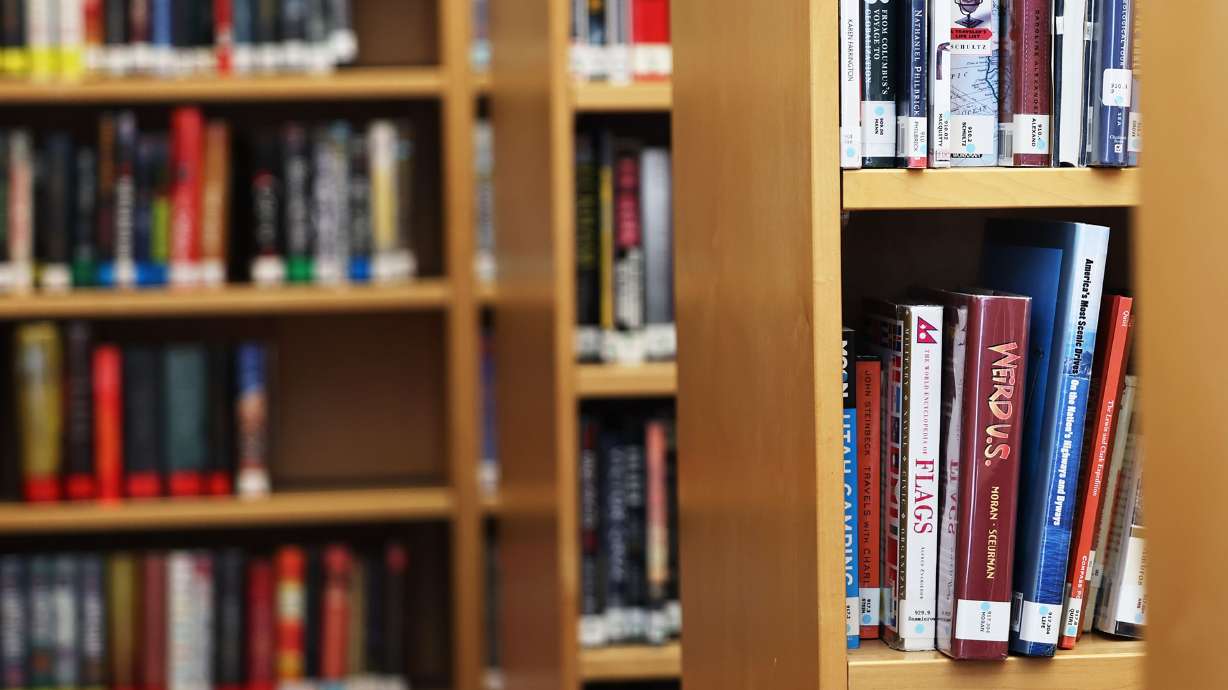Estimated read time: 3-4 minutes
This archived news story is available only for your personal, non-commercial use. Information in the story may be outdated or superseded by additional information. Reading or replaying the story in its archived form does not constitute a republication of the story.
SALT LAKE CITY — If a handful of Utah school districts and charter school boards determine a school library book or other materials contain pornography or are otherwise indecent, the material could be removed from public school libraries statewide under amendments approved by a legislative committee Wednesday.
The Utah Legislature's Education Interim Committee approved a number of amendments to current state law that created a mechanism for Utahns to challenge books and other materials in public schools. Committee members voted to approve the legislative proposal and send it to the House of Representatives for consideration during the 2024 general session.
Under the amendments to Utah's "sensitive materials law," a book would be required to be removed statewide if at least three school districts or two school districts and five charter schools voted to remove it from circulation after determining it contained "objective sensitive material" — pornographic or otherwise indecent material.
Sen. Kathleen Riebe, D-Cottonwood Heights, who is a public school teacher and congressional candidate, said the proposed legislation, as currently drafted, would allow a small number of school boards — district and charter — to effectively deselect books or other materials statewide.
"My struggle is, that there are many, many very small school districts," said Riebe, singling out Tintic and Piute districts as examples. According to new state enrollment figures the district's fall 2023 enrollments were 177 and 262 students, respectively.
"I think that giving that much power to small school districts and charter schools is not really beneficial to the people of Utah and it's government overreach into people's schools," she said.
There are 41 school districts statewide and about 145 charter school campuses statewide.
The proposal would also expand those who may initiate book challenges to elected officials who represent "all or part" of a school district or where a charter school is situated. Otherwise challenges can be lodged by school employees, students or parents of a child enrolled in a "relevant" district or charter school.
Sen. John Johnson, R-North Ogden, said the original legislation and proposed amendments are "not about burning books or banning books. This is about protecting the innocence of children and I think that's important. Nothing in this bill limits the access to these books in public libraries, doesn't limit the sale of these books. The state simply takes them out of school libraries."
The proposed amendments also state if an individual makes three unsuccessful challenges during a given school year, they wouldn't be able to trigger another sensitive material review for the rest of that academic year.
Rep. Carol Moss, D-Holladay, said school districts developed workable policies and procedures after West Jordan Republican Rep. Ken Ivory's "sensitive materials" legislation, HB374, passed in 2022.
"My school district, the third largest in the state, Granite. I've seen their spreadsheet. I've seen the work that review committees have done. It's been very thorough. They removed some books, the challenged books, they moved some of them to high school only. They've involved parents and it's working well. I think we should stay with that model if we have anything at all," said Moss, a retired high school English teacher.
Educators and school librarians are leaving the profession, and it's difficult to encourage others to enter the profession under the current political climate, she said.
"This is government overreach. We put in place a policy that is working and now we're going to make changes that don't make any sense," she said.
The overarching goal of the legislation and amendments is "protecting our children and for individuals who are victims of sexual abuse," said Rep. Candice Pierucci, R-Herriman.
"Porn is not classic literature. It's not and that's what we're targeting here. This is about whether or not taxpayers should be funding pornographic books in the K-12 setting," she said.










